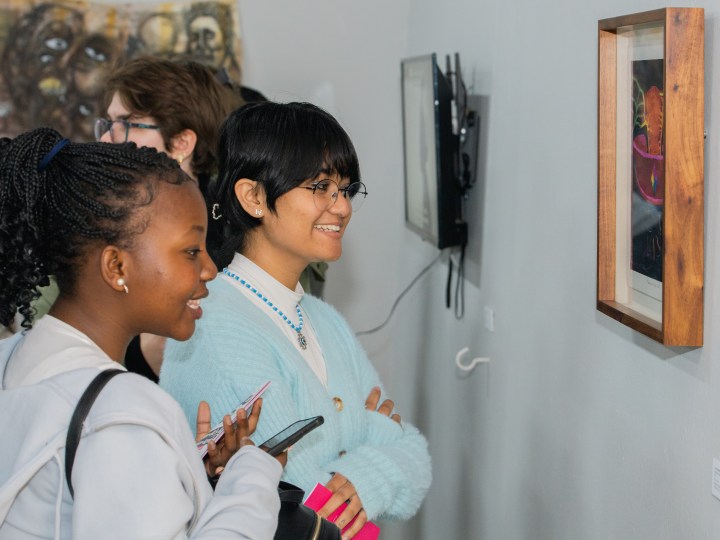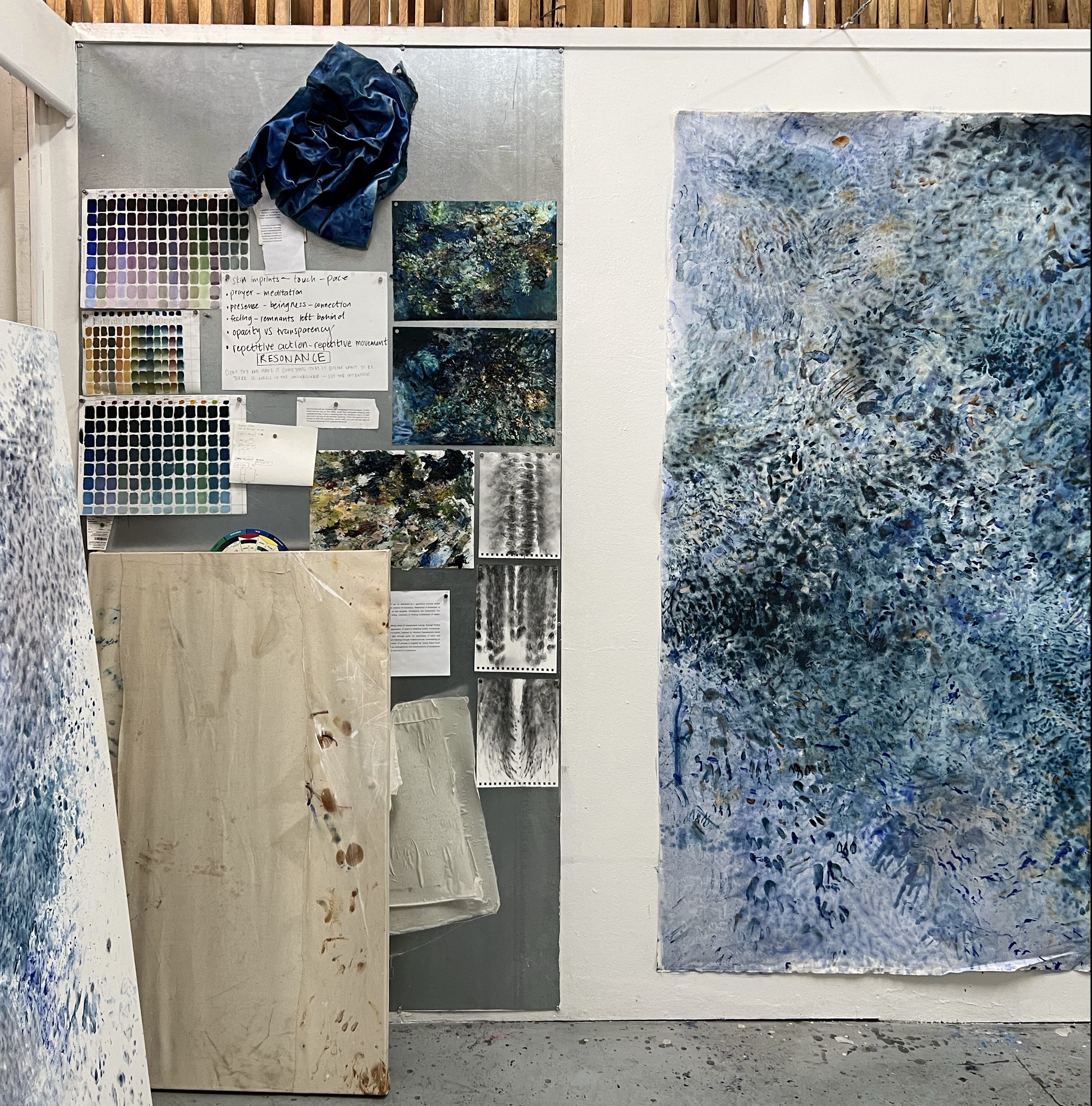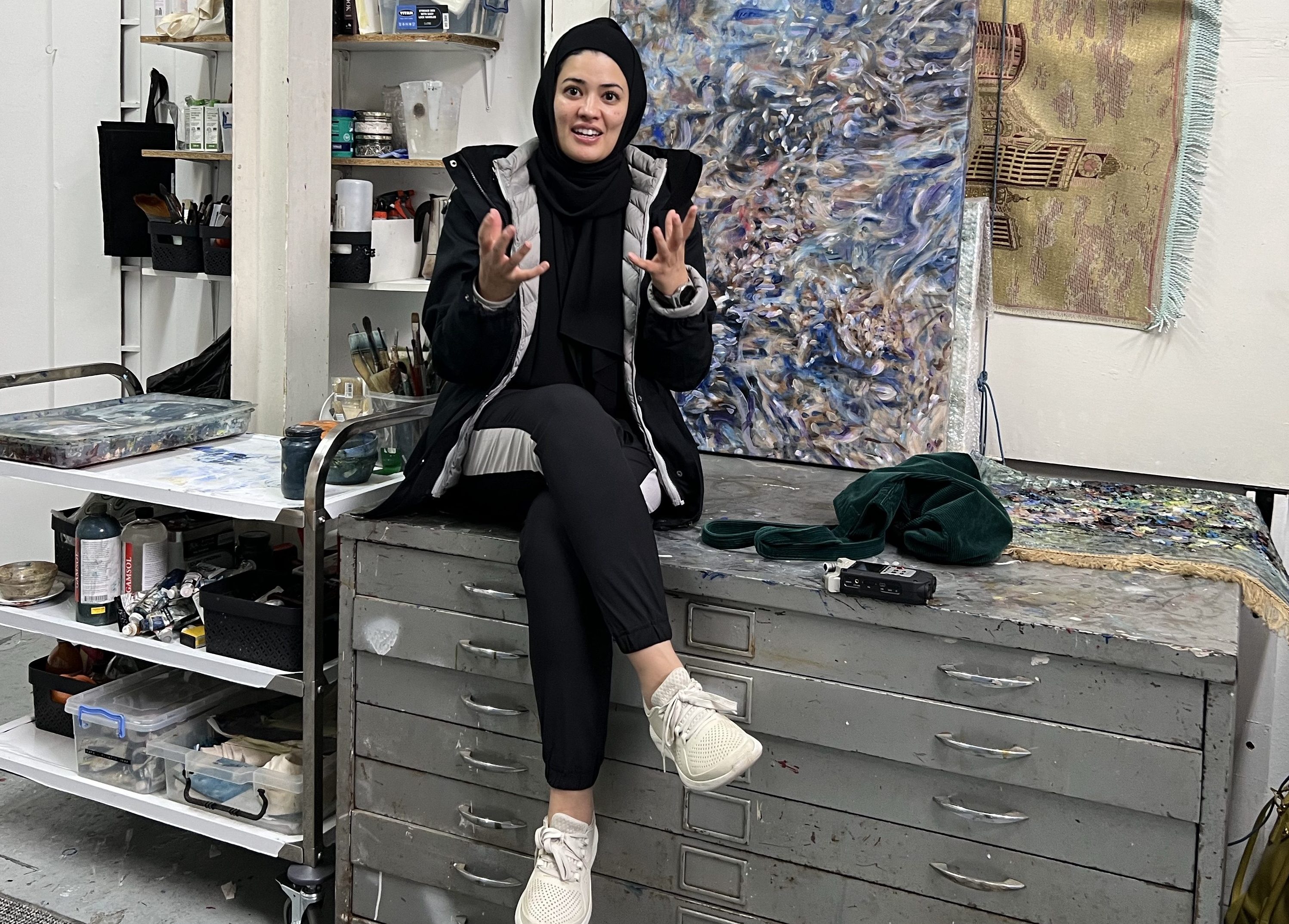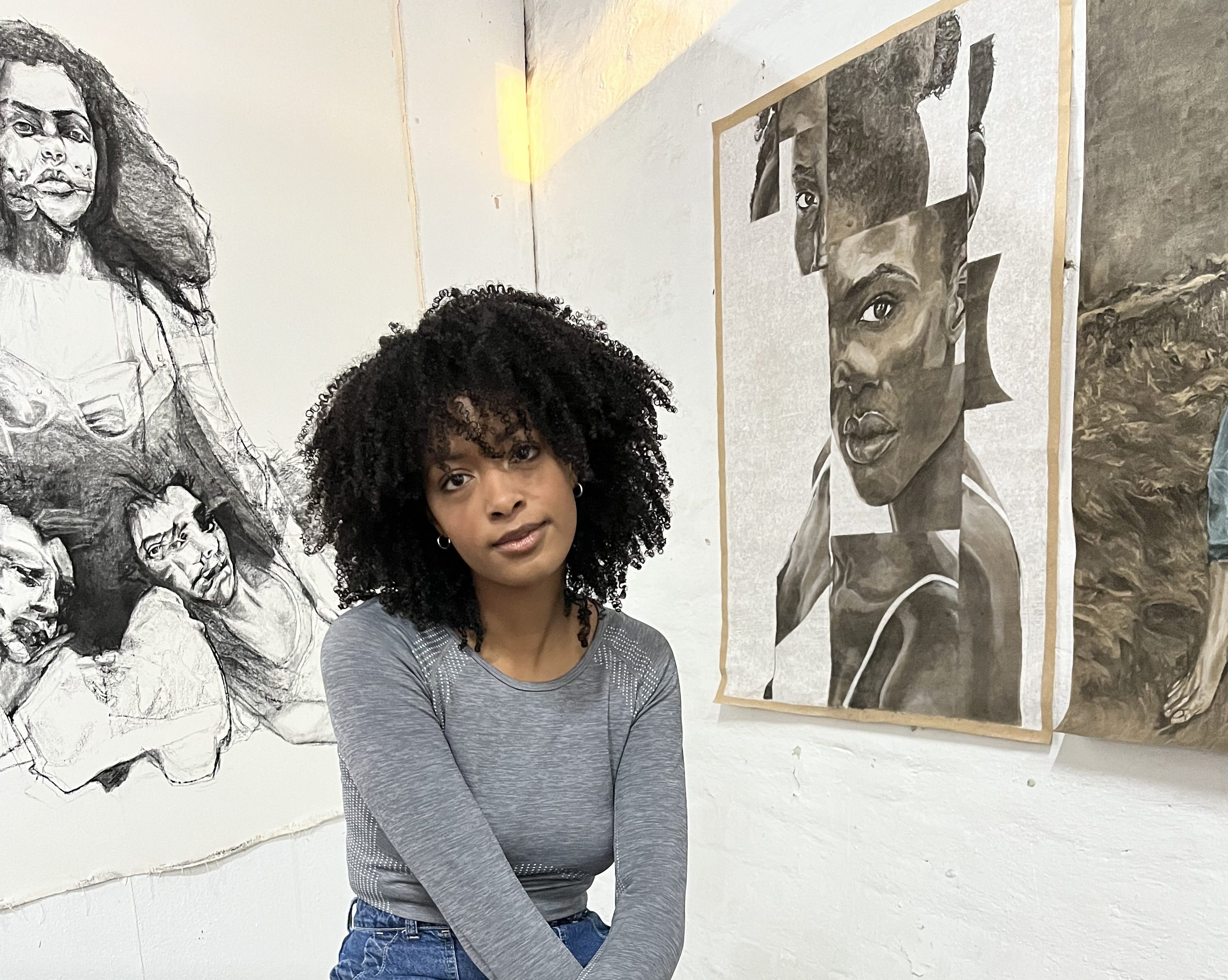MATTERS OF THE ART
Escape and communal spirit at Latitudes Art Fair and Open Studios Joburg

Open Studios Joburg programme and its shimmering counterpart, Latitudes, provided an escape for anyone willing to explore contemporary art.
The term “Open Studio” is relatively clear in its meaning. An artist provides an audience with access to the environment in which their work is conceptualised and produced. It sits in contrast with but is not necessarily in opposition to an “exhibition”, where artwork is generally presented as if it sprung, fully formed and framed, from the gleaming surface of the gallery floor.
In Johannesburg, the spaces where artworks are exhibited are, for the most part, marketplaces, where they are presented as tidy products, packaged to appeal to a buyer. The spaces where art is made bear the marks of the making process, evidence of the trials and errors that precede the artwork.
In theory, the form of the Open Studio resists the resolution that an exhibition demands. It allows for experimentation and a loose, wider interpretation of an artist’s practice, but it is also its own kind of performance, where the need to sell is no less acute than in the space of an exhibition.
The past week in Johannesburg saw both models play out in parallel; Latitudes held its second in-person art fair following a Covid-19 hiatus, and the META foundation launched “Open Studios Joburg”, shuttling visitors between studio complexes and related cultural spaces in the inner city. On the surface, the two could not be more different.
Shepstone Gardens, where Latitudes hosted this year’s fair, is described on its website as, “…a venue for life’s best occasions: the pinnacle of sophistication and grace.” The hyper-embellished architecture and elaborately landscaped Shepstone Gardens with its White Lotus overtones, made for a welcome, if melodramatic, change from the sterile halls of the Sandton Convention Centre. Latitudes created a world of its own, providing an escape for anyone willing to let go of the need for contemporary art to take itself deeply seriously at all times.
The inner city streets and buildings that formed the backdrop for Open Studios Joburg over the same weekend have decidedly less sparkle. The drawcard is the ingenuity, communal spirit and extraordinary hustle that belies Johannesburg’s grit. Despite the sharp variation between these settings, much of the art on show was similar in its execution, medium and subject matter, with many artists exhibiting on Latitudes and Open Studios Joburg simultaneously.
The key difference for Fatima Tayob Moosa, whose gestural paintings appeared on both platforms, was in the way each setting conditioned audience engagement. She explained from her studio at the Bag Factory in Fordsburg that her “…work doesn’t grab lots of people, it has a more intimate relationship with its audience… I’m working on an energetic level – my work is about the process, it’s not about outcomes.” For this reason, Moosa felt the Open Studio format was better suited to her practice, which is rooted in the physical and spiritual act of making.

Fatima Tayob Moosa – Studio. Photograph: Chloë Reid

Fatima Tayob Moosa in Studio. Photograph: Chloë Reid
The dynamic of a working studio inevitably shifts when it becomes a studio on show, and for most artists, there is a level of curation involved. The romanticism around an artist’s process is attractive to visitors, who are allowed to develop a more personal relationship with the artist and their work. Moosa’s process was made legible to her audience through an index of marks, materials and notes in her studio. A range of works was displayed on her walls at various stages of development. She lamented that most of her resolved works had been sent to Latitudes.
Several artists at the Bag Factory transformed parts of their studios into gallery-like spaces, with completed works carefully arranged on the walls or floor area. Usen Obot’s immaculate relief panels and sculptures, incorporating soft acrylic colour, metal and steel elements, were carefully arranged in his studio. His experience running his own gallery, Gallery Noko in Nelson Mandela Bay, was evident.
For anyone familiar with the Bag Factory, it’s hard to picture Pat Mautloa or his work anywhere other than in his studio, which he has retained there for more than 30 years.
“When you have been here for a while you become a de facto host. It has become very difficult for me not to see myself here. It has become my life,” he says.
Mautloa is a founding member of the studio complex, and while his work has been extensively exhibited and forms part of significant collections around the world, its formal and conceptual relationship to the urban environment in which it is made is an indispensable part of the work. “…he draws inspiration from the changing city, its streets and the movement of its people; reclaiming city spaces as he layers urban debris in his paintings, collages, assemblages and installations,” reads a small pamphlet in his studio. It is tidier than usual but covered in fragments of the same debris that characterises his work – its own collage.
Nyakallo Maleke, who has had a studio at the Bag Factory for just over a year, described her experience at Open Studios Joburg as “…affirming in a lot of ways. I was able to make some sales and I’m slowly getting the hang of being able to speak about my work and promote it. At the end of the day, as artists, we are the only people that know our works. We should be the ones who can best represent it.”
The Bag Factory is the longest-standing of several hive-like studio complexes that were the primary focus of Open Studios Joburg. It was co-founded in 1991 by artist David Koloane and the philanthropist Robert Loder as a safe space for the sharing of ideas and the nurturing of artistic practices beyond racial and cultural divides. Koloane kept his studio there up until his death in 2019. The organisation has managed to survive despite limited public funding for the arts, because of the commitment of its artists, who support one another and the organisation in numerous ways. These include financing studio bursaries for young artists, artworks donated by alumni for fundraising auctions, as well as skills contributions by resident artists to workshops and programmes.
“The reason I think this space has survived is because it was started by artists who wanted to make creative space for themselves,” suggests Fatima Tayob Moosa.
Kay-Leigh Fisher and Nadia Laila Myburgh, both of whom opened their studios to the public last weekend, are the recipients of the Young Womxn Studio Bursary which is supported by celebrated artist and Bag Factory alumni Sam Nhlengethwa. Myburgh experienced a sense of freedom during her time as a studio resident relative to the pressures of tertiary study.

Kay-Leigh Fisher – Studio. Image: courtesy of the artist
“Here it feels a lot more free so you’re able to explore certain things without limitation and also get feedback,” she says.
Mautloa has observed an upsurge of young people at the Bag Factory in recent years.
“You finish university and what do you do then? You try to go home and try to draw in the dining room. They always know there’s a space where there are workshops, where they can meet other artists,” explains Mautloa.
“The Bag Factory prides itself in its community. It’s a safety net for my practice, creatively. I don’t go into the creative process alone,” says Maleke.
According to Moosa, Mautloa’s contribution to the Bag Factory is invaluable.
“Pat has been integral to my practice. He pops his head in every now and again and says: What’s up? What are you doing? Where’s that other one that I saw, what did you do with it? He’ll tell me this one needs more balance, or you need to work on that area a bit more – but not too much!”
Mautloa sees the studios as his “…social space. What encourages me is that there is always a new energy. I enjoy being here. I could have moved to many other spaces but my being here gives young people some confidence. I’m always accessible to them. Many of the young people like to be here because of that sense of community and because of its provenance.”
The Open Studios Joburg event invites the public into this nurturing and supportive community of artists, who, despite the much-needed revenue of sales generated by the event, are primarily motivated in their creative endeavours by their peers.
What is largely missing in both the Open Studios Joburg programme and its shimmering counterpart, Latitudes, is a platform for art where its value is not contingent on self-promotion and sales. Organisations like the Bag Factory make room for trial and error in the creative process but the outcomes of that process are subject to market pressures that prescribe the kind of work that gets exposure. Under these conditions, the diversity of artistic practices seen by the public is inevitably limited. For the creative process, research and experimentation to be seen as valuable in and of itself, a more dramatic shift is required in the cultural mindset of the private and public sectors as well as from artists themselves. DM
This text was produced during an independent journalism development project by African Arts Content focused on the Open Studios Joburg programme.



















Comments - Please login in order to comment.